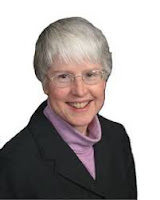Narrator: Consent to euthanasia is sometimes ignored in the Netherlands.
Margreet: And I said the cause of death, what is the cause of death and she said pneumonia and heart failure, but I thought, I was laying in bed, no it was not, it was that lethal injection you gave her.
Narrator: And in neighboring Belgium, people with disabilities are being targeted.
Lionel Roosemont: We were walking with our child in her wheelchair and we would have people who we do not know, and they would come towards us, and they would ask us, why don't you have euthanasia with that child.
Narrator: Even those in favor of euthanasia in the Netherlands say we've gone too far.
Dr Boudewijn Chabot: People who are fighting their fear of life and fighting against death flock to the life ending clinic and then we see that there is a slippery slope.
 |
| Hugo de Jonge |
Gerbert van Loenen: What we have seen here in the Netherlands and in Belgium is that the euthanasia practice has broadened.
Narrator: When euthanasia was legalized in the Netherlands it was based on an adult who was capable of consent but as Margreet van der Valk found out doctors sometimes make the decision to euthanize patients on their own.
Margreet: And he said, the decision to let her go or to let her live, you couldn't make because you were not there so I made it because they said my mother was depressed, but she was not depressed.
Narrator: Lionel Roosemont lives in Belgium. His daughter Tikvah has lived with a significant brain conditions from birth. It's hard to believe but people often ask why he hasn't euthanized his daughter.
Lionel: Our children were there when people were telling us to have euthanasia with her. And my daughter who was thirteen at the time, she said: "they do not have the right to say that." She was very angry but she was right.
She's a joy for everyone of our family members. We cannot image her being gone, impossible.
Narrator: Dr Boudewijn Chabot, sometimes called the pioneer of euthanasia in the Netherlands sees a real culture shift as people with psychological illnesses are now being euthanized.
Boudewijn: We do slide down with demented brain diseases and psychiatric cases. But on the whole you have to see it in perspective. These are two groups together are 200 of the 6000, that's small, that's always the arguement the review committee says - don't worry Mr Chabot it's only 200 cases, so that's the way they re-assure the public. But I say look at the steep rise in seven years.
Gerbert: Will this also apply to patients with psychiatric disorders, will this also apply to patients with alzheimer's disease, will this even apply to patients with advanced alzheimer's disease, will this apply to babies, will this apply to children?
Narrator: Indeed the Netherlands is now considering the expansion of euthanasia to children. Many people are sounding the alarm bells with the concern that this is one step too far.

Lionel: Tikvah has been a testimony to us. If today you go through Belgium, you will not see many young children that have a handicap because they were not left to be alive.
More articles on this topic:
- The Netherlands government intends to extend euthanasia to children but not to people who are tired of living (Link).
- The Dutch government wants to avoid the debate by permitting child euthanasia without changing the law (Link).
- *Sign and share the Petition opposing child euthanasia in the Netherlands (Link).
























